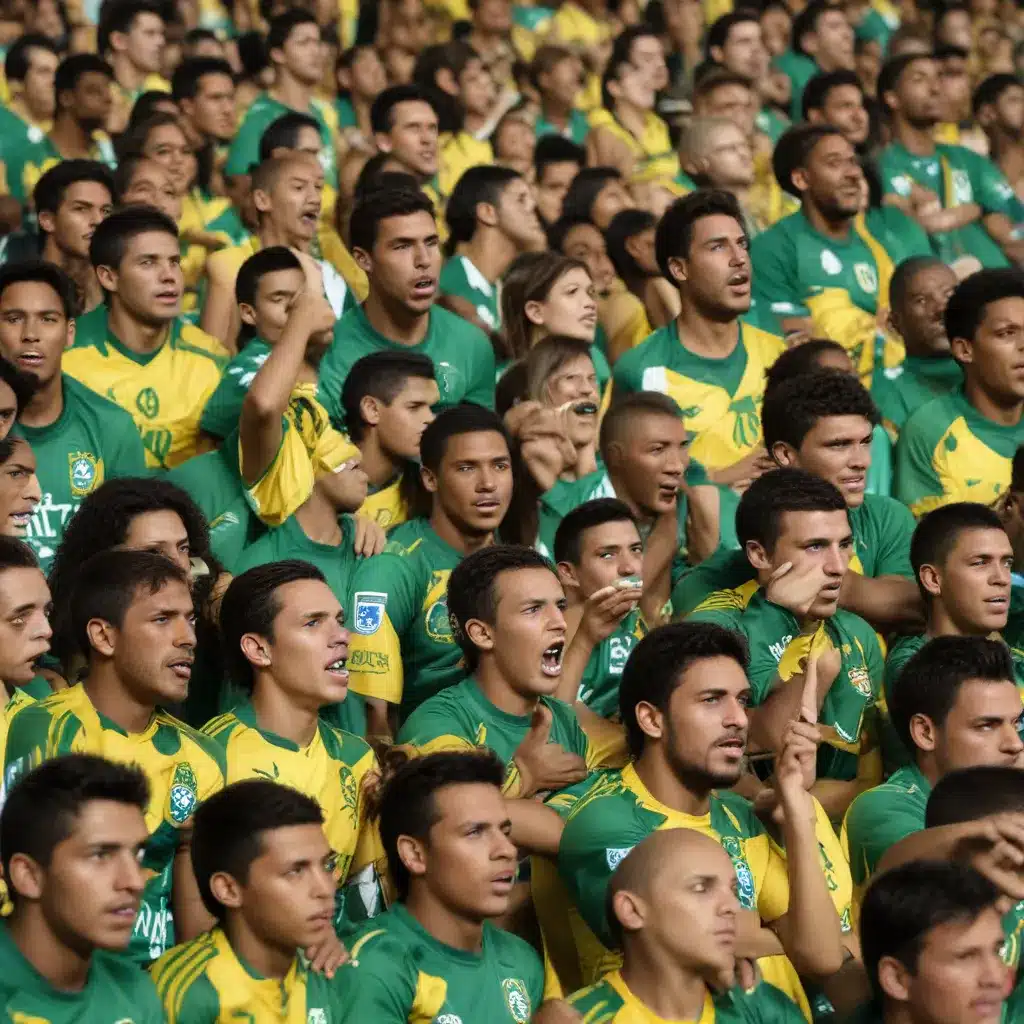
Football Culture in Brazil
Football is more than just a sport in Brazil – it is a way of life. The passion and fervour of Brazilian fans is unparalleled, with each regional powerhouse and storied club commanding a devout following. From the samba-infused atmosphere of the Maracanã to the iconic Flamengo and Corinthians rivalries, the emotional investment of the Brazilian public in their national game is simply unmatched.
This fervent football culture is deeply woven into the fabric of Brazilian identity. Legends like Pelé, Ronaldo, and Neymar have transcended the sport to become cultural icons, their sublime skills and achievements elevated to mythical status. The ginga (swagger) and improvisation of the Brazilian game has become a point of national pride, with the Seleção (national team) inspiring a sense of unity and patriotism unrivalled anywhere else in the world.
Football Governance in Brazil
At the heart of Brazilian football’s success and controversies lies the Brazilian Football Confederation (CBF) – the governing body responsible for overseeing the sport nationwide. The CBF has long been dogged by allegations of corruption, cronyism, and mismanagement, with its presidents facing constant scrutiny and criticism from fans and the media.
The organisation’s tight control over the lucrative national leagues – the Campeonato Brasileiro Série A (top division) and the Copa do Brasil – has enabled it to accrue significant financial and political power. This, in turn, has led to concerns over the equitable distribution of resources, the independence of club ownership, and the transparency of key decision-making processes.
Regulatory frameworks governing player transfers, stadium safety, and match-fixing have also come under the spotlight, with recurring issues undermining public confidence in the sport’s integrity.
Controversies in Brazilian Football
Player Transfers and Agent Influence
The world of Brazilian football transfers is a labyrinth of opaque negotiations, complex ownership structures, and the powerful influence of player agents. High-profile sagas, such as the drawn-out Neymar transfer saga and the controversy surrounding Gabriel Jesus‘ move to Arsenal, have highlighted the potential for conflicts of interest and the lack of oversight in these processes.
Allegations of illicit payments, undisclosed third-party ownership, and the undue influence of agents have raised serious questions about the fairness and transparency of player transactions. This, in turn, has fuelled concerns about the sport’s financial integrity and the ability of clubs to compete on a level playing field.
Stadium Safety and Fan Violence
The tragic history of stadium disasters in Brazil, such as the Hillsborough and Heysel incidents, has cast a long shadow over the sport. Persistent issues with crumbling infrastructure, inadequate crowd control, and the prevalence of fan violence have continued to plague Brazilian football, undermining efforts to create a safe and enjoyable matchday experience.
Hooliganism and the power of ultras groups have been a particular concern, with clashes between rival fans and the police often resulting in injuries, property damage, and even fatalities. The 2013 Corinthians vs Atlético Paranaense riot, which left several people dead, was a stark reminder of the deep-seated tensions and challenges facing the sport.
Match-Fixing and Corruption Allegations
Allegations of match-fixing and broader corruption have also plagued Brazilian football, eroding public trust and the sport’s integrity. High-profile cases, such as the Máfia do Apito (Whistle Mafia) scandal in the early 2000s, have revealed the extent to which illicit activities have infiltrated the game at various levels.
The involvement of organised crime syndicates, the complicity of officials, and the failure to implement robust anti-corruption measures have all contributed to the perception that the sport is vulnerable to manipulation. This, in turn, has raised concerns about the credibility of competition outcomes and the overall fairness of the Brazilian football ecosystem.
Impact of Controversies
The persistent controversies in Brazilian football have had far-reaching consequences, both for the sport and the wider society.
Public Perception and Trust
The repeated scandals, cover-ups, and lack of accountability have severely damaged public perception of the sport, with many fans expressing a growing sense of disillusionment and cynicism. The perception that the game is rigged, corrupt, and prioritises the interests of a select few over the broader fan base has eroded the sport’s credibility and standing in the eyes of the Brazilian public.
Financial Implications
The financial ramifications of these controversies have been equally significant. Dwindling stadium attendances, declining sponsorship and broadcasting deals, and the loss of international prestige have all taken a toll on the sport’s economic viability. The inability to attract and retain top talent, as well as the diversion of resources away from grassroots development, have further exacerbated these challenges.
Regulatory Reforms
In response to the mounting public pressure and the need to restore faith in the sport, there have been calls for sweeping regulatory reforms within Brazilian football. This has included demands for greater transparency, independent oversight, and the implementation of robust anti-corruption measures to address the deep-seated issues plaguing the game.
However, the pace of change has been slow, with the CBF and other influential stakeholders often resisting efforts to relinquish their grip on power and institute meaningful reforms. The ongoing struggle to balance the interests of the game’s governing bodies, club owners, and the passionate fan base remains a significant obstacle to achieving meaningful and lasting change.
As Brazilian football continues to grapple with these complex and multifaceted challenges, the need for a comprehensive, transparent, and accountable approach to governance has never been more pressing. The future of the sport, and its enduring place in the hearts and minds of the Brazilian people, hangs in the balance.

